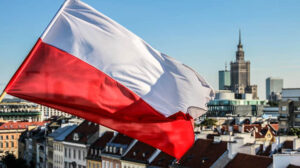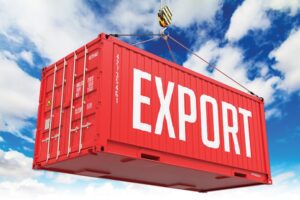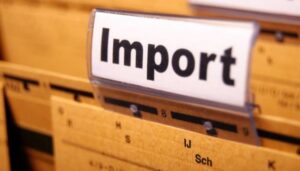
Imports of trucks to Ukraine in January-October 2025 increased by 8% in monetary terms compared to the same period in 2024, reaching $819.5 million, according to statistics from the State Customs Service.
According to the published data, the growth rate of imports of this type of vehicle has slowed down again, reaching 11.6% in the first 10 months compared to the same period in 2024.
In October, truck imports fell by 17% compared to October 2024, to $79.2 million, which is also a quarter less than in September 2025.
The largest number of trucks in 10 months was imported from Poland – $149.6 million (1.3% less than last year), France – $133.2 million (43.3% more) and the United States – $104.2 million (30.4% more).
Imports from all other countries in January-October decreased slightly, amounting to $432.6 million.
At the same time, according to statistics, Ukraine exported only $5.6 million worth of trucks in 10 months, mainly to Turkey (62.4% of exports), Romania (32.4%), and Moldova, while a year earlier, exports were even more insignificant ($2.8 million), mainly to Moldova, Poland, and Kazakhstan.
As reported, in 2024, imports of trucks to Ukraine in monetary terms increased by 30% compared to 2023, to $947.84 million, with most of them imported from Poland (almost 20%).

The Polish Ministry of Internal Affairs and Administration has submitted an application to the European Commission for complete exemption from the solidarity mechanism under the migration pact, the ministry’s press service reported on Wednesday.
“For months, we have been stating our disagreement with any resettlement mechanisms. Poland incurs enormous costs to protect the European Union’s borders, faces migration pressure from Belarus, and accepts military refugees from Ukraine. It is important to note that the decision to submit such an application means protection for many years, not just one. We announced this and kept our word,” commented Polish Interior Minister Marcin Kerwinski, quoted by the ministry’s press service.
Earlier, Polish Prime Minister Donald Tusk said that the country would definitively refuse to implement the EU migration pact. President Karol Nawrocki and Foreign Minister Marcin Kerwinski also announced their intention to oppose the implementation of the EU migration pact in Poland.
As reported, the Polish-Belarusian border has suspended the acceptance of applications from foreigners for international protection. The relevant resolution of the Polish government, valid for 60 days, came into force on March 27, 2025, and was subsequently extended by the Sejm.
Source: http://relocation.com.ua/poland-plans-to-withdraw-from-the-eu-migration-pact/

According to the results of January-October 2025, Poland, Turkey, and Germany remain Ukraine’s largest export destinations. The volume of supplies to Poland amounted to $4.2 billion, to Turkey – $2.2 billion, to Germany – $2.0 billion, according to the State Customs Service.
Food products lead the export structure with $18.2 billion, metals and metal products with $3.9 billion, and machinery, equipment, and transport with $3.1 billion. UAH 950.7 million was paid to the budget for the clearance of goods subject to export duties.
According to the State Customs Service, total exports for 10 months decreased by 4.05% to $33.2 billion.

Imports of goods to Ukraine in January-October 2025 reached $67.8 billion, which is 18.1% more than a year earlier, according to the State Customs Service. The largest countries of origin for imports were China with $15.1 billion,
Poland with $6.4 billion, and Germany with $5.4 billion.
Taxable imports amounted to $51.8 billion, or 76% of the total volume. The tax burden per 1 kg of taxable imports was $0.52/kg.
In terms of commodity structure, 68% was accounted for by machinery, equipment, and transport—$27 billion (customs payments—168 billion UAH, 29%); chemical industry products—$10.4 billion (81.1 billion UAH, 14%); fuel and energy products – $8.5 billion (UAH 167.9 billion, 29%).
Source: https://expertsclub.eu/import-v-ukrayinu-zris-na-18-lidyruyut-kytaj-polshha-nimechchyna/

Ukraine has been increasing its flax exports for the fourth month in a row amid active demand from exporters. Exports in October amounted to 7.65 thousand tons, which is 26% more than in September this year, according to the information and analytical agency APK-Inform.
Analysts noted that the main buyers of flax are EU countries. In October, 43.1% of supplies were purchased by France, 16.8% by Poland, and 11.4% by Italy.
“The increase in flax exports began in July this year, when the active phase of harvesting this crop began. Thus, flax exports in July were recorded at 1.37 thousand tons, and in August at 3.3 thousand tons,” the experts noted.
A sufficient supply of flax is pushing buyers to lower prices. Thus, the maximum demand prices for flax in Ukrainian ports fell by UAH 800/ton over the month and, as of November 6, usually do not exceed UAH 28,500/ton CPT port, according to APK-Inform.

According to Eurostat, as of the end of July 2025 there are 4,373,455 citizens of Ukraine under temporary protection in EU countries. Over the month their number increased by 30,980 people, that is approximately by 0.71% compared to the June level — the dynamics are moderate but stable, indicating a continuing, though not surging, movement of people in search of safety. The overwhelming majority of beneficiaries of this regime — about 98.4% — are Ukrainians, which makes the group of aid recipients extremely homogeneous and requires focused integration measures.
The distribution by countries remains concentrated: the key burden is borne by Germany, Poland, and the Czech Republic. In Germany there are about 1,196,645 people — roughly 27.8% of the total; in Poland — about 992,505 people (around 23%); in the Czech Republic — about 378,420 people (about 8.8%). Taken together this is almost three-fifths of all recipients of protection, therefore it is precisely these economies and their social systems that first react to any changes in inflow: in large agglomerations the issues of housing affordability become acute, the need for school places and language courses grows, and municipal budgets face continuous obligations.
In such conditions, reception policy inevitably shifts to an integration agenda. Coming to the fore are the accelerated recognition of qualifications, intensive language programs, access to kindergartens and schools, as well as reskilling instruments. The labor market becomes the main shock absorber: the faster people move into formal employment, the lower the budgetary burden and the more noticeable the multiplier effect for domestic demand. At the same time, the housing issue remains the key risk: concentration in capital and industrial regions pushes rental rates upward and increases social tension. Effective responses appear to be targeted rent subsidies, accelerated renovation and construction of social housing, as well as a more even distribution of placements among municipalities.
Finally, the predictability of financing and interagency coordination at the EU and national government levels becomes critically important. Even with the current “soft” monthly increase, unreliable sources of funds quickly turn a manageable situation into a problem for local budgets. On the horizon of the coming months, the key indicators of resilience will be the growth rates of protection beneficiaries, the share of those employed, indicators of school and preschool integration, the dynamics of rental rates in concentration regions, and the speed of transition from emergency measures to long-term programs. Overall, the picture of stable but continuing growth with high concentration in Germany, Poland, and the Czech Republic requires shifting efforts from short-term aid to systemic integration — precisely this will make it possible to reduce budgetary costs and turn the humanitarian response into a sustainable socio-economic result.
EU, GERMANY, HOUSING, Labor market, MIGRATION, POLAND, REFUGEES, SOCIAL POLICY, TEMPORARY PROTECTION, UKRAINIANS